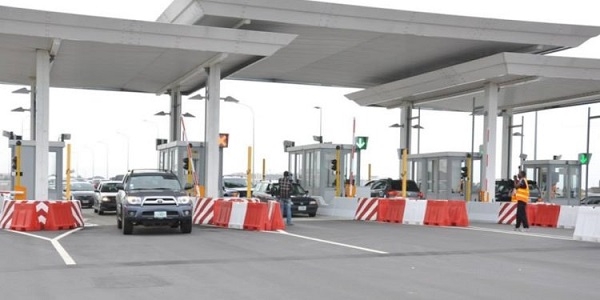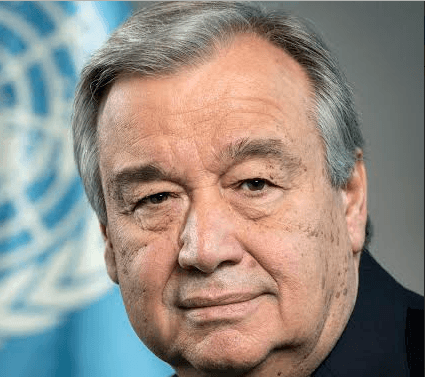Nigeria's FDI inflows in 2024 less than 1% of GDP - World Bank | The Guardian Nigeria News - Nigeria and World News
The World Bank has revealed that Nigeria was only able to attract foreign direct investment (FDI) valued at less than one per cent of the country’s gross domestic product (GDP) in 2014.
The bank blamed the abysmal performance on what it called structural constraints that affect the business environment.
This is even as the Group Chief Economist and Managing Director, Afreximbank Group, Dr. Yemi Kale, has called on Africans to shift their focus from foreign direct investments to investments in Africa by Africans.
In the first quarter of 2024, FDI stood at $119.18 million, accounting for 3.53 per cent of the total capital importation of $3.376 billion. By Q2 2024, FDI dropped to $29.83 million, marking the lowest level ever recorded based on available data up to 2013. This decline is attributed to factors such as naira devaluation, unstable foreign exchange markets, and high costs of doing business in Nigeria. However, by the third quarter, FDI increased to $103.82 million.
The World Bank, in its recent report on Nigeria, said recent reforms by the Central Bank of Nigeria (CBN) increased foreign exchange inflows into the country, which it said was mainly driven by foreign portfolio investments (FPI)—attracted by relatively high yields and potential revaluation gains.
According to the bank, the surge in foreign portfolio investment (FPI), which grew by 110 per cent in 2024 to $13 billion, contributed to a stronger financial account position.
It, however, said that though FPIs are helpful as a source of forex, debt financing, and external adjustment, FPI flows are volatile, especially when they are short-term, as is predominantly the case for Nigeria at present.
Nigeria has faced serious economic challenges exacerbated by high interest rates, hyperinflation, unstable foreign exchange markets, insecurity, and high energy costs, all of which combine to make the business environment unfriendly.
This situation saw the exit of many multinational companies, including Unilever Nigeria PLC, Procter & Gamble Nigeria, GlaxoSmithKline Consumer Nigeria Ltd, ShopRite Nigeria, Sanofi-Aventis Nigeria Ltd, Equinox Nigeria, Bolt Food, and Jumia Food Nigeria from the country.
In his address at the African Direct Investment (ADI) Sensitisation Workshop in Cairo, Egypt, recently, Dr. Kale redefined the future of African investment, placing African capital at the centre of the continent’s growth story.
Speaking on the sidelines of the Focus Africa Trade and Investment Forum, Dr. Kale unveiled key findings from the inaugural ADI Baseline Report, which reveals that between 2017 and 2020, over $44 billion in investment flowed within Africa—by Africans, for Africa. “This isn’t just capital,” he said. “It’s a catalyst, a vote of confidence by Africans in Africa.”
He said, “For too long, the African Investment discourse has been framed almost exclusively through the lens of foreign direct investment (FDI)—with the continent cast as a passive recipient of flows from Europe, North America, Asia, and more recently, the Middle East.”
He noted that these external flows have often been tied to commodity cycles, extractive industries, and large-scale infrastructure projects. “While valuable, this narrative has obscured a critical and growing force: investment by Africans, in Africa,” he said, noting that that omission has had consequences. “It has distorted perceptions. It has impeded policy responses, and it has undervalued the transformative role of African capital, capital that is not just financial, but institutional, entrepreneurial, and deeply rooted in local realities.”
Kale, a former Chief Executive of the National Bureau of Statistics (NBS), emphasised that African Direct Investment (ADI) is the financial engine that will drive economic integration under the African Continental Free Trade Area (AfCFTA), strengthen local value chains, and build resilient cross-border industries.
“Unlike short-term foreign inflows, ADI is rooted in regional trust, cultural familiarity, and long-term commitment,” he said.
He said key highlights from the baseline report show that East and Southern Africa accounted for nearly 70 per cent of intra-African Investment.
The report also shows that the top source countries include Mauritius, Kenya, South Africa, Egypt, and Nigeria, while the financial sector attracted over $30 billion.
It noted that surprising destinations like Zimbabwe and South Sudan reflect a shift in investment perception. Dr. Kale called the report “not just rich in data, but rich in insight,” offering governments, investors, and trade bodies a roadmap for targeted policy, risk management, and strategic collaboration.









